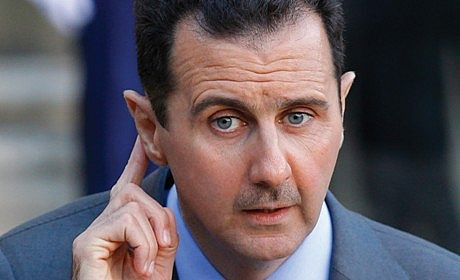The Late-Presented Peace Plan

In your opinion, does Bashar Assad's speech carry special importance? Can one notice a change of position in his speech? Is he going to withdraw from his past positions with regard to the opposition?
This speech is very important because it shows that either Mr. Assad has no correct analysis of the situation in his country or that he intentionally ignores many issues. In his speech, he magnified the current situation in the country but did not mention the reasons behind the protests. He believes that the root of the crisis lies outside the country and not inside and that foreign terrorists are responsible for the continuation of the crisis. Therefore, his solution is the following: resistance against the foreign enemy through harsh nationalistic slogans and the mobilization of the Syrian people.
During his speech, Bashar Assad presented a plan for moving out of the crisis. In your opinion, can one expect that his plan will reduce the level of the crisis?
This plan solves no problem because he has no realistic view of the current situation in Syria. If he had presented his plan at least one year earlier, it could have controlled the situation to a certain degree and by giving parts of his power to the people, he could have prevented the spread of the crisis and its transformation into a civil war which has resulted in the collapse of the Syrian economy and the killing of more than 60000 people and the displacement of a considerable section of the people, as well as injury to the Syrian body.
In his speech, Mr. Assad expressed his readiness to negotiate with those who, as he put it, have not committed treason. Who are those people according to him?
He considers those who are against his extraordinary power as traitors. Perhaps he means those who criticize the situation but still accept his authority! If Mr. Assad had presented this plan immediately after the people's uprising, he could have probably played a role like that of the former king of Spain, Juan Carlos, who, following Franco's despotism, raised the flag of democracy and saved Spain from the crisis. However, Assad chose another method, the result of which has been the death of 60000 and tens of thousands injured and displaced. His measures pushed his opponents, who were demonstrating, to other methods. It is true that some of those who are fighting in Syria are Takfiris and affiliated with al-Qaeda and that his Islamist opponents are severely extremist and violent; however, Bashar has not accepted even his liberal opponents. His point of view that most of Syria's enemies stand behind the armed opponents is undoubtedly true. However, the biggest role in the creation of the crisis was that of him and his incorrect and unrealistic policies.
While the Syrian National Coalition Council, the most important opposition group, the US, Turkey, and Britain have criticized Bashar Assad's speech, Iran has welcomed it. In your opinion, bearing in mind that the Syrian National Coalition Council has opposed Assad's plan, is it possible to find a solution to the crisis?
It is unlikely to reach an agreement between the two sides because Mr. Assad has closed the door. Now his opponents are divided into the following categories: first, armed opponents who are fighting the supporters of Bashar Assad; second, liberal opponents who established the Syrian National Coalition in the Doha conference and are supported by a part of the international community and continue to survive with pressure from the West and Qatar; third, Kurds who have benefited most from Mr. Assad's actions and are now in charge of the Kurdish region without the presence of the Syrian government; and fourth, the domestic opponents who criticize the government from within Syria and have no significant role in developments in the country. Bashar Assad hopes to start negotiations with the latter group, but the end result of such negotiations is known beforehand.
It seems that in practice, Syria has been divided into three parts. Some parts are in the hands of the armed opponents where they expand the guerrilla war against the government. Some parts are in the hands of Kurds, and finally there are some areas still controlled by the government.
The important point in the Syrian crisis is not the mere collapse of the Assad government. The essential problem will emerge after the demise of the government. Perhaps, the Syrian crisis will be the beginning of a religious and ethnic conflict. The West and Israel are the winners of such a conflict and the conflicting parties, with a strong religious incentive, will try to either be victorious or become martyrs. In either case, they will lose.

